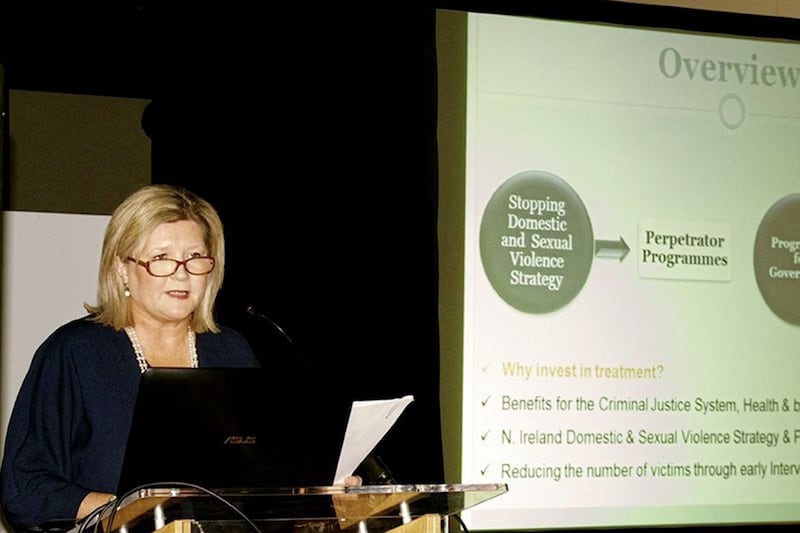THE success of the informal approach of Belfast's Substance Misuse Court will `inform' Scotland's own problem solving court, according to a trio of visiting judges.
Sheriff Lindsay Wood, Sheriff Iain Fleming and Sheriff Gerry Bonnar, who collectively preside over drug and alcohol courts in Glasgow, attended a session in the Laganside complex yesterday.
They were there to `share learning' from their own courts, and met Judge Fiona Bagnall, court staff, Probation Board (PBNI) director of rehabilitation Geraldine O'Hare and Court Service director Glyn Capper.
Drug and alcohol misuse is a growing problem in Northern Ireland, with figures showing increasing numbers of visits to needle and syringe exchange schemes and a doubling of drug-related deaths among men in the last decade.
It is estimated substance dependency is directly linked to offending in 76 per cent of cases within PBNI.
The Glasgow model is split into two courts. Its drug court has been running since 2001 and was joined by the alcohol court in 2018, the same year Belfast introduced its Substance Misuse pilot.
Mr Wood said his drugs court has a success rate of "65-70 per cent" offenders who have "completed the course to a greater or lesser extent".
"Very few come back in front of me. Very often [when then complete the course] I know it's unlikely they will come back."
Both work along similar lines to the Substance Misuse Court, working on individual's addiction issues and pattern of offending and the jurisdictions have what Mr Fleming described as a "constructive symbiotic relationship".
Unlike the Belfast court, they also provide a health team to support addicts and a more formal setting with wigs and gowns worn and judges sitting on a raised dais.
Mr Fleming, an alcohol court judge, said he and his colleagues had found Northern Ireland's "combination of two courts interesting" and would be discussing what they could learn from that and its "more informal approach".
He said they were also keen to explore Judge Bagnall's use of "pre-court meetings with social workers".
"That is something we'd like to take away. There are various aspects that we would like to consider."
Mr Fleming said his court has a greater than 70 per cent success rate for reoffending.
"It's not just about assisting offenders, it's also about assisting offenders families. One of the most heartfelt thanks I got was from a mother who told me about the toll the offending had taken on their family and thanked me for changing that."
Mr Bonnar, also an alcohol court judge, said the courts were "certainly not a soft option", given the "scrutiny involved" in the programmes.
Ms O'Hare said "just this morning the judge actually dismissed someone from the programme who had had enough chances and they weren't engaging for lots of reasons".
"They are drug tested, have got to go to treatment, their lives are open and picked away at - every aspect - to help them get clean."






